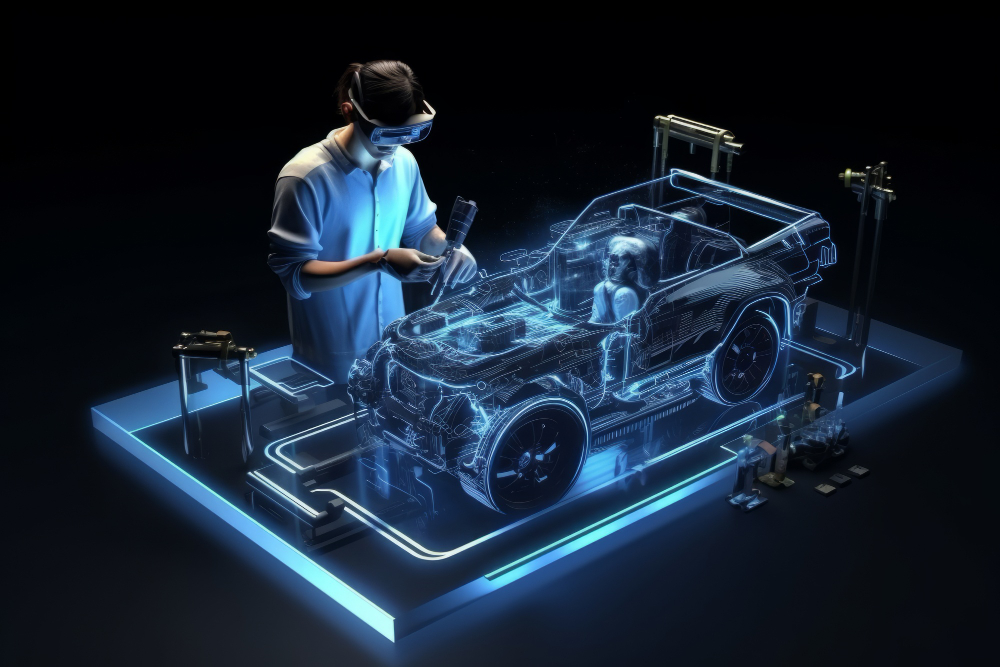In today’s rapidly evolving world, technological advancements are reshaping various industries, including automotive. As the automotive sector embraces innovations like electric vehicles, autonomous driving systems, and advanced safety features, it becomes imperative to integrate automotive technology into education.
Table of contents
- 1 Why Integrate Automotive Technology?
- 2 Real-World Application
- 3 Preparing Future Professionals
- 4 Fostering Innovation
- 5 Collaboration with Industry
- 6 Hands-On Learning
- 7 Access to Advanced Tools and Equipment
- 8 Addressing Sustainability
- 9 Cross-Disciplinary Learning
- 10 Promoting Career Readiness
- 11 Adapting Curriculum
- 12 Interactive Learning Tools
- 13 Project-Based Learning
- 14 Industry Certification Programs
- 15 Addressing Technological Advancements
- 16 Diversity and Inclusion
- 17 International Collaboration
- 18 Promoting Entrepreneurship
- 19 Ethical Considerations
- 20 Conclusion
Why Integrate Automotive Technology?
Automotive technology is not just about cars; it encompasses a wide range of concepts, including engineering, electronics, and computer science. By integrating automotive technology into education, students gain practical knowledge and skills that are relevant to the modern automotive industry.
Real-World Application
Bringing automotive technology into the classroom allows students to apply theoretical concepts to real-world scenarios. Whether it’s designing electric vehicle components or programming autonomous driving algorithms, hands-on experience fosters a deeper understanding of automotive technology.
Preparing Future Professionals
By familiarizing students with automotive technology early on, educational institutions prepare them for future careers in the automotive industry. Whether students pursue engineering, design, or management roles, a solid foundation in automotive technology provides valuable expertise and opens doors to diverse career opportunities. Sometimes even professionals need help, see what good services are recommended on reddit.
Fostering Innovation
Integrating automotive technology stimulates innovation and creativity among students. Encouraging them to explore new ideas and solutions to automotive challenges cultivates a culture of innovation that drives progress in the automotive industry.
Collaboration with Industry
Educational institutions can collaborate with automotive companies to provide students with industry insights and practical experience. Partnering with industry professionals enables students to access cutting-edge technology, internship opportunities, and mentorship programs.
Hands-On Learning
Hands-on learning is a cornerstone of integrating automotive technology into education. Building and testing prototypes, troubleshooting technical issues, and collaborating on projects simulate real-world scenarios, enhancing students’ problem-solving skills and teamwork abilities.
Access to Advanced Tools and Equipment
Equipping educational facilities with advanced tools and equipment replicates professional automotive environments. From 3D printers and CNC machines to diagnostic scanners and vehicle simulators, access to modern technology enriches students’ learning experiences and answers the question “How do I get help with my homework?”.
Addressing Sustainability
As the automotive industry transitions towards sustainability, integrating green technology into education becomes essential. Educating students about electric vehicles, hybrid systems, and alternative fuels instills a sense of environmental responsibility and prepares them for the future of mobility.
Cross-Disciplinary Learning
Integrating automotive technology into education fosters cross-disciplinary learning, bridging the gap between engineering, computer science, and business studies. Collaborative projects encourage students from different disciplines to collaborate and exchange ideas, mirroring the interdisciplinary nature of the automotive industry.
Promoting Career Readiness
Ultimately, integrating automotive technology into education is about preparing students for successful careers in a rapidly evolving industry. By providing them with the knowledge, skills, and practical experience needed to thrive in the automotive sector, educational institutions empower students to become future leaders and innovators.
Adapting Curriculum
Incorporating automotive technology into the curriculum requires adapting traditional subjects to include relevant automotive concepts. From incorporating electric vehicle technology into physics classes to teaching programming skills for autonomous vehicle systems in computer science courses, a flexible curriculum ensures students receive comprehensive education.
Interactive Learning Tools
Utilizing interactive learning tools such as virtual reality (VR) simulations and augmented reality (AR) experiences enhances engagement and comprehension. VR simulations allow students to explore automotive design, manufacturing processes, and vehicle operation in a virtual environment, while AR applications overlay digital information onto real-world objects, providing interactive learning experiences.
Project-Based Learning
Embracing project-based learning immerses students in hands-on experiences that mirror real-world automotive challenges. Tasking students with designing, building, and testing automotive prototypes encourages critical thinking, problem-solving, and collaboration skills essential for success in the automotive industry.
Industry Certification Programs
Offering industry certification programs provides students with tangible credentials recognized by automotive employers. Partnering with certification organizations allows educational institutions to align their curriculum with industry standards and equip students with valuable certifications that enhance their employability upon graduation.
Addressing Technological Advancements
Staying abreast of technological advancements in the automotive industry is crucial for educational institutions. Continuously updating curriculum, investing in state-of-the-art equipment, and providing professional development opportunities for faculty ensure students receive relevant and up-to-date education in automotive technology.
Diversity and Inclusion
Promoting diversity and inclusion within automotive education fosters a more inclusive and equitable learning environment. Encouraging underrepresented groups, including women and minorities, to pursue careers in automotive technology cultivates a diverse workforce that reflects the broader community and brings new perspectives to the industry.
International Collaboration
Facilitating international collaboration opportunities allows students to gain global perspectives on automotive technology. Partnering with educational institutions and industry organizations worldwide enables students to exchange ideas, share best practices, and participate in cross-cultural learning experiences. Read in this speedypaper review about a service that offers writing help to professionally promote your ideas.
Promoting Entrepreneurship
Encouraging entrepreneurship among students empowers them to innovate and create solutions to automotive challenges. Providing resources such as business incubators, startup accelerators, and entrepreneurship courses equips students with the skills and knowledge needed to launch their own automotive ventures.
Ethical Considerations
Integrating ethical considerations into automotive education encourages students to consider the societal impact of automotive technology. Discussions on topics such as vehicle safety, data privacy, and environmental sustainability foster ethical decision-making and responsible innovation among future automotive professionals.
Conclusion
Integrating automotive technology into education is essential for preparing students for the challenges and opportunities of the modern automotive industry. By providing hands-on learning experiences, fostering innovation, and promoting collaboration with industry, educational institutions empower students to become the next generation of automotive leaders and innovators. With a comprehensive education that encompasses theoretical knowledge, practical skills, and ethical considerations, students are poised to make meaningful contributions to the future of mobility.








